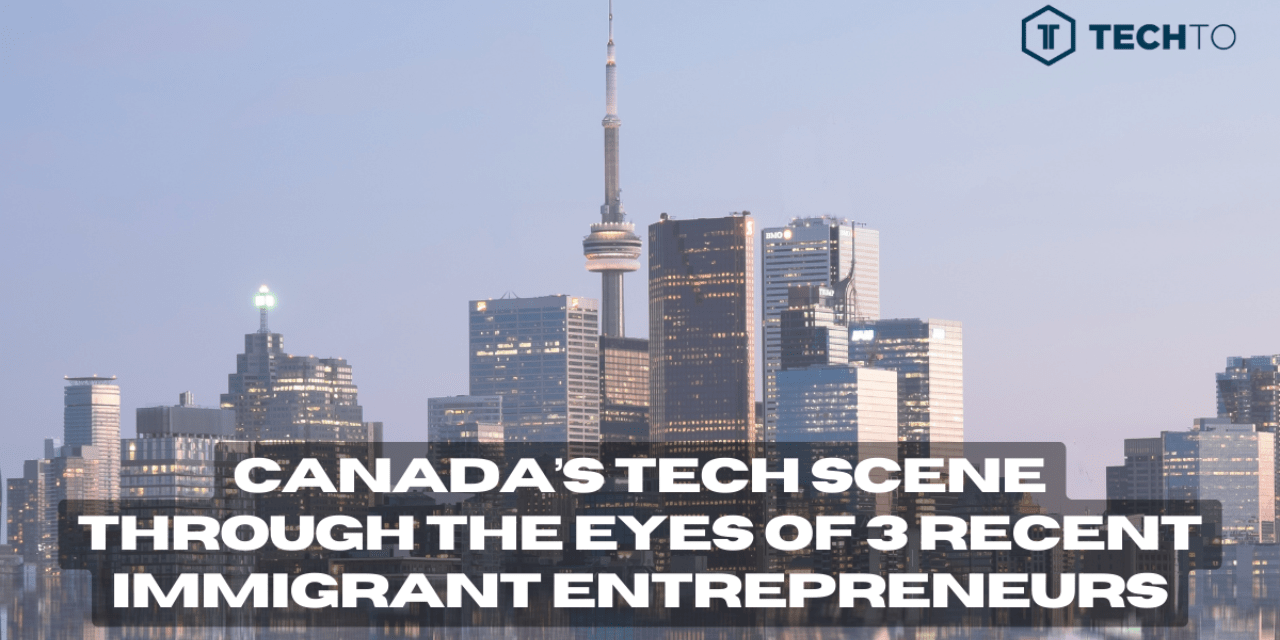The Collision conference kicked off in Toronto yesterday, a multi-day laser light show of technology talk, investment courtship and bold pronouncements. And this means that discussion of the Toronto tech sector will be at a fever pitch for the next few days, as everyone from founders to politicians to celebrity dabblers push their wares and promote our companies and our region as a hotbed of products, talent and investment potential.
Yes, everyone at the conference has their own angle, but they are also tapping into the strategic reality that being part of a bigger story is a valuable part of the play: that the sector’s speed and momentum can grow exponentially as more and more people throw their weight behind it.
There are lessons here, and ones that go beyond just what’s happening in Toronto tech right now.
The impact of this strength was proven again recently as we performed our first benchmark study of our community’s diversity and inclusion, work led by our member company, Diversio.
Diversity and inclusion are topics that are often raised as one of the greatest things a tech ecosystem can do to accelerate its advantage. First Round Capital looked at overall returns generated by their companies and found that companies with a female founder performed 63% better than all-male teams. Harvard professor Paul Gompers and Silpa Kovvali found a similar effect in venture capital: firms that increased female partner hires by 10% saw an average 1.5% spike in overall fund returns and had 9.7% more profitable exits.
But we knew little about the demographic realities of our own community, and so we used Diversio’s machine learning enabled CRM tool to understand the demographic realities of OneEleven’s 50 member companies and their approximately 900 employees.
Interestingly, the study shows that companies inside OneEleven have a diversity and inclusion benefit beyond companies operating on their own in the sector.
Our respondents ranked their experiences of inclusion higher than sector average on four out of six indicators that correlate directly with employee attraction and retention, innovation, job satisfaction, career advancement, and productivity.
The community did especially well when it came to “access to networks” – scoring a 9.0 against the tech sector average of 7.2. Within OneEleven, underrepresented groups can access the networks, mentorship and support of the whole community even if they are in a company where such resources are not easily available.
Lack of access to mentorship, career advice, advocates and sponsors has been shown to disproportionately disadvantage those who are not in the majority – women, people of colour, LGBTQ, and those living with disabilities. And so access to networks among our diverse population is significant, and will have longtail positive impacts.
There is a tacit competitiveness and osmosis within the space, and the research suggests that companies are not only helping one another scale and succeed, but improving one another’s approach to inclusion as well.
Unfortunately, OneEleven still falls below the sector average when it comes to women. Out of approximately 900 employees across 50 companies, those who identify as women, intersex, gender non-conforming and non-binary account for 32 per cent.
But this is another area where the community’s strength is proving vital to solving the problem.
Not only are shared best practices changing the diversity of teams, the open discussion about these factors are provoking individual companies to make different moves, from introducing parenting policies to changing the formation of their postings.
OneEleven has also involved the community in identifying, recruiting and selecting new companies for membership through Community Review Panels. These panels are comprised of diverse members of the community – diverse across all measures of identity, professional role and educational and personal background – and ensure that a plurality of viewpoints is mined and applied to finding diverse companies to join the community, ones who are led by different kinds of founders and tackling different kinds of problems.
As a result, the community has doubled its population of women founders in the last eight months, and made a commitment to sustainable team building a core assessment lens on its new members.
The tech sector has built a mythology around the promise of a new approach, a new way of thinking, organizing, problem solving. But this promise will only be truly realized if it continues to be applied internally, for tech companies to continue to challenge their own thinking and push themselves to find novel solutions and ways forward.
The Toronto tech sector has done this with unbelievable success over recent years, pushing hard to emerge as an economic and job creating force.
But the most important benefits of this community mindset may only just be beginning to emerge.
OneEleven diversity study demonstrates the power of community
October 3, 2019

Sign up to The Upskiller.
OneEleven is home to Toronto’s most promising technology companies. Stay up to date on who’s joining, who’s raising, who’s making moves and everything that matters in a city and sector that’s built to scale.
Sign up for our newsletter
2023 COPYRIGHT AND TRADEMARK. ONEELEVEN IS AN INITIATIVE LED BY THE ONTARIO CENTRE OF INNOVATION. SUBSIDIARIES AND AFFILIATES. ALL INTELLECTUAL PROPERTY RIGHTS RESERVED.


